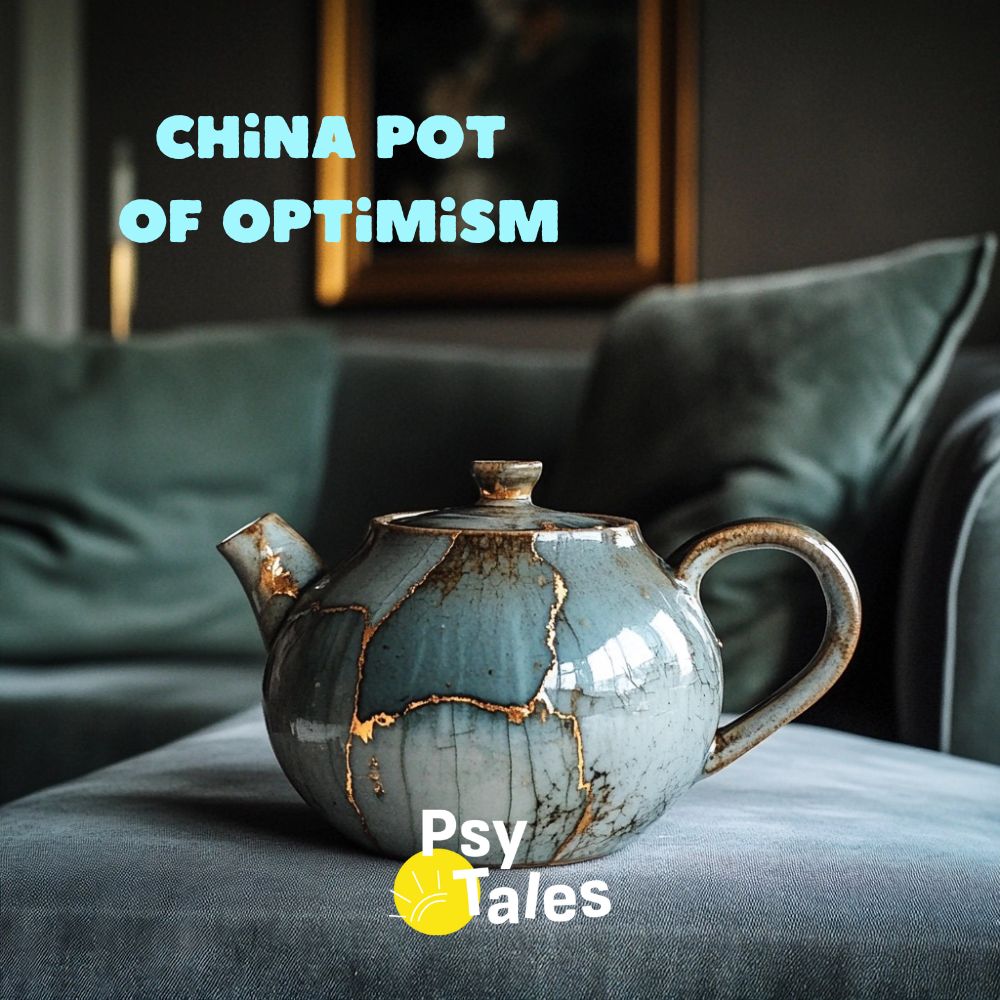China Pot of Optimism
Short story
by Dr Jolanta Burke
Optimism is a mindset that we can all learn, and it can greatly influence how we react to challenging situations. When faced with adversity, optimists approach it in distinct ways that differ from pessimists: Optimists don't blame themselves entirely: Instead of taking all the blame for what went wrong, optimists consider external factors that may have contributed to the outcome. For example, when a pot breaks, they might acknowledge that the boys were playing a game when the pot broke, or that the pot was placed precariously on the edge, making it easy to break. Optimists see bad things as temporary: They believe that difficult times are just temporary hurdles that can be overcome with effort and determination. Unlike pessimists, who may feel that bad situations will last forever, optimists remain hopeful and proactive, believing that they can change their circumstances for the better. Optimists compartmentalise problems: When faced with a setback, optimists tend to isolate the problem and view it as specific to that situation. For instance, if a child receives a poor grade on a test, an optimist might think, "I didn't do well on this one subject," whereas a pessimist might catastrophise and think, "This grade means I'll fail this subject, and then I'll fail the whole year." As educators and parents, we can play a crucial role in nurturing optimistic thinking in children. By actively listening to their narratives about challenging experiences, we can help them reframe their thoughts in a more optimistic light. Encouraging them to consider external factors, view setbacks as temporary, and compartmentalise problems can empower them to develop a resilient and positive outlook on life.


